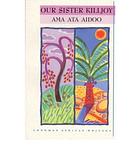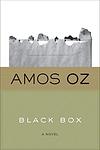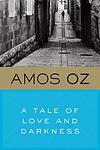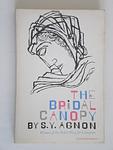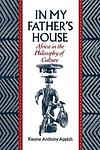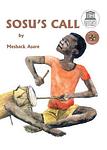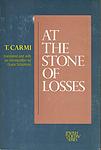The Greatest Israeli, Ghanaian Books of All Time
Click to learn how this list is calculated.
This list represents a comprehensive and trusted collection of the greatest books. Developed through a specialized algorithm, it brings together 300 'best of' book lists to form a definitive guide to the world's most acclaimed books. For those interested in how these books are chosen, additional details can be found on the rankings page.
Genres
Countries
Date Range
Reading Statistics
Click the button below to see how many of these books you've read!
Download
If you're interested in downloading this list as a CSV file for use in a spreadsheet application, you can easily do so by clicking the button below. Please note that to ensure a manageable file size and faster download, the CSV will include details for only the first 500 books.
Download-
1. The Beautyful Ones are Not Yet Born by Ayi K. Armah
The novel explores the life of a railway clerk in Ghana who refuses to accept the corruption that is rife in his society. Despite his family's struggles with poverty, he remains steadfast in his moral convictions, rejecting the easy path of bribery and deception. The protagonist's integrity contrasts sharply with the greed and materialism of his peers, providing a stark commentary on post-colonial African society. The book is a powerful critique of corruption and a testament to the strength of individual integrity.
-
2. The Book of Job by Unknown
"The Book of Job" is a profound biblical narrative that explores the themes of faith, suffering, and divine justice. It tells the story of Job, a prosperous and righteous man who experiences immense suffering as he loses his wealth, children, and health. Despite his trials, Job maintains his faith in God, engaging in intense dialogues about human suffering and divine justice. The story concludes with God restoring Job's fortunes and blessing him more abundantly than before, demonstrating the inscrutable nature of divine wisdom and the rewards of unwavering faith.
-
3. Our Sister Killjoy by Ama Ata Aidoo
This novel explores the journey of a young African woman who travels to Europe on a scholarship, only to confront the stark realities of neocolonialism and the African diaspora's experiences in the West. Through her eyes, readers are exposed to themes of identity, alienation, and the complexities of cultural assimilation. The protagonist's observations and interactions challenge the romanticized views of Europe, offering a critical examination of the impacts of colonialism and the ongoing struggle for self-definition and autonomy among Africans both at home and abroad. The narrative is a poignant critique of postcolonial society, delivered through a blend of prose and poetry that captures the protagonist's internal and external conflicts.
-
4. Homegoing by Yaa Gyasi
This epic novel traces the lineage of two half-sisters from 18th century Ghana to present day America. One sister is sold into slavery and shipped to America, while the other is married off to a British slaver and remains in Africa. The book follows their descendants through the generations, exploring the lasting impact of slavery and colonialism on Black lives. The narrative showcases the struggles, resilience, and triumphs of each generation, providing a deep and personal view into the historical events and societal changes that shaped their lives.
-
5. Sapiens: A Brief History of Humankind by Yuval Noah Harari
This book provides a comprehensive exploration of the history of the human species, tracing back from the earliest forms of Homo Sapiens to the modern day. It delves into evolutionary biology, the development of cultures and societies, and the rise of major ideologies and technologies. The book also discusses the future of the species, posing thought-provoking questions about our roles and responsibilities in a rapidly changing world.
-
6. Thinking, Fast and Slow by Daniel Kahneman
The book delves into the two systems that drive the way we think—System 1, which is fast and intuitive, and System 2, which is slow and deliberate. The author, a Nobel laureate, explores how these systems shape our judgments and decision-making. He presents several groundbreaking experiments that have shaped our understanding of human thought, revealing where we can trust our intuitions and how we can tap into the benefits of slow thinking. The book also discusses how our cognitive biases often lead to errors in judgment and affect our decision-making processes.
-
7. Black Box by Amos Oz
"Black Box" is a novel that explores the complex dynamics of a broken family. The story revolves around a divorced couple who are forced to reconnect after their son begins to display troubling behavior. The husband, a stern and disciplined judge, and the wife, a free-spirited Holocaust survivor, must navigate their personal differences, past hurts, and current relationships to address their son's issues. The book is written in the form of letters, revealing the characters' inner thoughts and struggles, making it a profound exploration of human relationships, regret, and reconciliation.
-
8. A Tale of Love and Darkness by Amos Oz
This book is a poignant memoir that explores the complexities of love, darkness, loss, and the endurance of the human spirit. Set against the backdrop of the end of the British Mandate for Palestine and the early years of the State of Israel, the author recounts his childhood in Jerusalem, the suicide of his mother, and his path to becoming a writer. The narrative is both a personal account and a portrait of a society in turmoil, providing a profound exploration of the individual and collective psyche.
-
9. Ethiopia Unbound by J.E. Casely Hayford
"Ethiopia Unbound" is a thought-provoking and insightful exploration of Ethiopia's rich history, culture, and potential for progress. Written by J.E. Casely Hayford, this book delves into the country's ancient civilization, its struggles against colonization, and its quest for independence. With a focus on Ethiopia's unique identity and the importance of embracing its cultural heritage, Hayford presents a compelling argument for Ethiopia's future as a prosperous and united nation.
-
10. Ghana: The Autobiography Of Kwame Nkrumah by Kwame Nkrumah
This autobiography tells the story of Kwame Nkrumah, the first President of Ghana and a key figure in the country's struggle for independence from British colonial rule. Nkrumah recounts his early life, his education abroad, and his political journey, providing insights into his vision for a united and prosperous Africa. He reflects on the challenges faced during his presidency, including the economic and political obstacles that hindered Ghana's progress. Overall, this book offers a personal account of Nkrumah's life and the pivotal role he played in shaping Ghana's history.
-
11. Anowa by Ama Ata Aidoo
"Anowa" is a thought-provoking play that delves into the complexities of love, tradition, and the clash between individual desires and societal expectations. Set in an African village, the story follows Anowa, a strong-willed and independent young woman, as she defies societal norms by rejecting potential suitors and choosing her own path. However, her unconventional choices lead to tragic consequences, highlighting the consequences of challenging traditional values and the limitations placed on women in a patriarchal society.
-
12. The Bridal Canopy by Shmuel Yosef Agnon
The novel is a rich tapestry of 19th-century Jewish life in Eastern Europe, following the picaresque journey of Reb Yudel, a poor, pious Jew, as he travels through Galician villages in search of suitable husbands for his three daughters. Along the way, he encounters a vivid cast of characters and experiences a series of adventures that reveal the customs, struggles, and faith of the Jewish communities of that era. The narrative, imbued with religious and folkloric elements, offers a blend of humor, irony, and profound insight into human nature and divine providence, painting a nostalgic picture of a bygone world.
-
13. Twilight And Other Stories by Shulamith Hareven
"Twilight and Other Stories" is a collection of evocative short stories that delve into the complexities of human experience, exploring themes of love, loss, identity, and the passage of time. The narratives, set against diverse backdrops, from ancient times to modern-day Israel, weave together a tapestry of characters each confronting their own moral dilemmas and emotional struggles. With a poetic and introspective style, the stories in this anthology invite readers to reflect on the subtle shades of humanity and the profound impact of seemingly ordinary moments.
-
14. Homo Deus by Yuval Noah Harari
This book explores the future of humankind, building upon the foundation laid by its exploration of our past. It delves into the potential paths humanity might take as technological advancements and artificial intelligence begin to challenge the very essence of what it means to be human. The narrative posits that as we conquer famine, war, and plague, our focus shifts towards achieving happiness, immortality, and divinity, raising profound questions about our future roles and values in a world where machines and algorithms might outperform us in thinking, making decisions, and understanding the universe. Through a blend of philosophy, history, and future-gazing, the book invites readers to consider the implications of such a future, both exhilarating and daunting.
-
15. Changes by Ama Ata Aidoo
"Changes" is a novel that explores the complexities of modern African life, particularly for women, through the story of its protagonist, a young woman named Esi. After enduring an unhappy marriage, Esi decides to divorce her husband in pursuit of independence and personal fulfillment. She then enters into a polygamous marriage with a man named Ali, believing it will allow her more freedom and respect. However, as the narrative unfolds, Esi confronts the realities and challenges of her choices, including societal expectations, the intricacies of love, and the struggle for a sense of identity amidst the changing cultural landscape of contemporary Ghana. The novel delves into themes of feminism, tradition, and the evolving roles of women in society.
-
16. In My Father's House by Anthony Appiah
"In My Father's House" by Anthony Appiah is a thought-provoking exploration of the complexities of African identity and the concept of cultural authenticity in a globalized world. Through personal anecdotes, historical analysis, and philosophical reflections, the author challenges essentialist notions of African culture, arguing for a more fluid understanding that embraces the diverse influences and hybridity of modern African societies. Appiah's nuanced perspective sheds light on the intricate interplay between tradition and modernity, and invites readers to question and redefine their own cultural identities.
-
17. My Life by Golda Meir
The book is an autobiography of one of the most influential women in modern history, who rose from the poverty of her childhood in Russia and Milwaukee to become the Prime Minister of Israel. It offers a compelling account of her role in the founding of the state of Israel and its early years, providing personal insights into the myriad political and military challenges the nascent country faced. The narrative is interwoven with her own life story, including her experiences with immigration, education, and her rise through the ranks of the labor movement and political leadership, all set against the backdrop of the 20th century's tumultuous events leading up to and following the establishment of Israel.
-
18. Cutting The Rose by Efua Doorkenoo
"Cutting The Rose" is a gripping and thought-provoking novel that delves into the complexities of identity, culture, and the power dynamics within a Ghanaian community. Set in the 1960s, the story follows the life of a young woman named Akosua, who must navigate the expectations placed upon her as a woman in a patriarchal society while also grappling with her own desires and ambitions. Through vivid storytelling and rich character development, the author explores themes of tradition, love, and the pursuit of self-discovery in a changing world.
-
19. Sosu's Call by Meshack Asare
"Sosu's Call" tells the story of a young boy named Sosu, who is born without the ability to walk. Despite this physical limitation, Sosu possesses a remarkable talent for carving beautiful objects out of wood. When his village is hit by a devastating storm, Sosu's bravery and resourcefulness are put to the test as he must find a way to save his community from the aftermath of the disaster. Through determination and the power of his artistic gift, Sosu becomes a symbol of hope and inspiration for his village.
-
20. Wife Of The Gods by Kwei Quartey
In a small village in Ghana, a young woman's body is found in a sacred forest, sparking an investigation led by Detective Inspector Darko Dawson. As he delves into the case, Darko uncovers a web of secrets and corruption that reaches high into the country's political elite. Along the way, he must confront his own personal demons and navigate the complexities of his culture and beliefs. With vivid descriptions of Ghanaian life and a gripping plot, "Wife Of The Gods" is a compelling crime novel that explores themes of tradition, power, and the clash between modernity and ancient customs.
-
21. Shirot Bialik by Hayyim Nahman Bialik
The book is a collection of poems by one of the most renowned Hebrew poets, reflecting a deep engagement with the Jewish experience and a masterful command of language. The poems range from personal reflections to nationalistic themes, exploring love, nature, and the struggles of the Jewish people. The poet's work is characterized by its emotional depth, lyrical beauty, and the use of traditional Jewish texts, which he reinterprets to address the contemporary issues of his time. His writing has left a lasting impact on Hebrew literature and Jewish culture, cementing his status as a national poet.
-
22. At The Stone Of Losses by T. Carmi
"At The Stone Of Losses" is a poetic exploration of memory, grief, and the enduring power of language. The work delves into the depths of personal and collective history, intertwining the author's own experiences with broader historical and mythological narratives. Through a tapestry of vivid imagery and emotive verse, the poet grapples with the themes of displacement, identity, and the search for meaning amidst the ruins of the past. The collection serves as a meditation on the ways in which we confront and commemorate loss, ultimately offering a poignant reflection on the human condition and our quest for understanding in a fragmented world.
-
23. Selected Poetry by Yehuda Amichai
The book is a compilation of poems by one of the most prominent Israeli poets, renowned for his innovative and evocative exploration of love, war, and the complexities of Jewish identity. The collection spans several decades of the poet's work, reflecting on personal and historical experiences while weaving a rich tapestry of images and emotions. The poet's language is both accessible and profound, often drawing from the well of biblical and modern Israeli life to create a body of work that resonates with universal themes of time, memory, and the human condition.
-
24. In The Heart Of The Seas by Shmuel Yosef Agnon
The book is a historical novella that follows a group of devout Jews from the Old Yishuv in Jerusalem as they embark on a perilous journey to the land of Israel in the late 19th century. Through a blend of myth, legend, and reality, the narrative explores themes of faith, longing, and the hardships of travel as the characters confront the trials of the sea and their own spiritual quests. The story delves into the lives and aspirations of these pilgrims, who are driven by a deep yearning to return to their ancestral homeland and the holy city of Jerusalem, reflecting on the enduring connection between a people and their sacred geography.
-
25. The Travels And Adventures Of Benjamin The Third by Mendele Mokher Seforim
The book is a satirical novel that follows the whimsical journey of a simple, dreamy Jewish villager, Benjamin, who is inspired by "Don Quixote" and sets out on a quest for adventure and discovery. Along with his loyal companion, they embark on a series of misadventures, seeking legendary rivers and wealth, but instead encounter the harsh realities of the Jewish existence in the Russian Empire. The narrative humorously critiques the social and political conditions of the time, while also exploring themes of escapism, the power of imagination, and the human condition.
Reading Statistics
Click the button below to see how many of these books you've read!
Download
If you're interested in downloading this list as a CSV file for use in a spreadsheet application, you can easily do so by clicking the button below. Please note that to ensure a manageable file size and faster download, the CSV will include details for only the first 500 books.
Download
